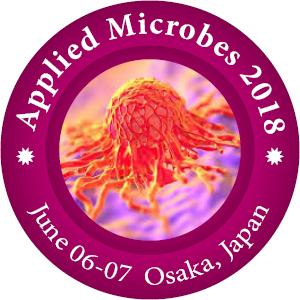
Min-Kyu Kwak
Sungkyul University, Republic of Korea
Title: Benefits of cultural exposure and development of Korean perspective-kimchi and fermentation products
Biography
Biography: Min-Kyu Kwak
Abstract
The antimicrobial activity of lactic acid bacteria (LAB) is well recognized, particularly because they can produce antimicrobial cyclic dipeptides (CDPs). CDPs serve as attractive scaffolds for drug design owing to the structural variety of their chiral side chains. Using filtrates from fermented kimchi produced using Leuconostoc mesenteroides LBP-K06 starter cultures, we previously demonstrated a combined chromatographic fractionation and gas chromatography-mass spectroscopy method for screening bioactive CDPs. However, the entire pool of CDPs from a given lactic acid bacterial culture is not fully understood. The present study identified the CDP produced by Lactobacillus plantarum LBP-K10, which was the most potent antimicrobial isolated from Korean kimchi. In total, 15 CDPs containing proline and a single CDP without proline were identified in the culture filtrates (CFs) using gas chromatography-mass spectroscopy (GC-MS). These CDPs were also commonly found in the CFs from other isolated LAB. We developed a new method for purifying a massive amount of complete sets of CDPs from CFs using the anion exchange resins Amberlite IRA-67, Purolite A420S, or both. Compared with the activities of the individual CDPs, the entire set showed remarkable potency including bioactivities against multidrug-resistant Gram-positive and Gram-negative bacteria, human and plant pathogenic fungi, and the influenza A virus (H3N2). We demonstrated that the combination of 16 CDPs naturally produced by one organism exhibited strong antimicrobial activity. This novel strategy for profiling metabolites would enable more effective assessments of fermented foods and LAB.

